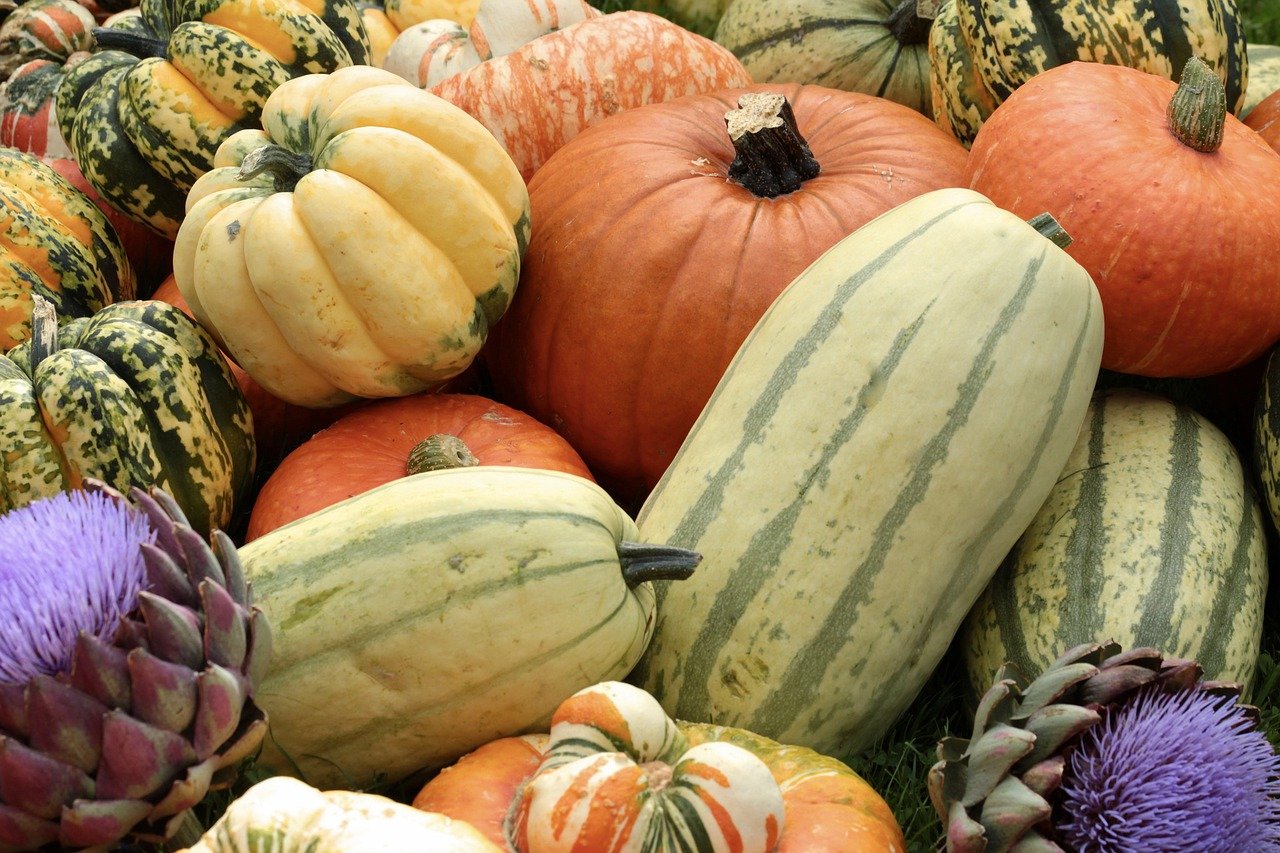You can definitely compost pumpkins. They’re rich in moisture, vitamins, and nitrogen, essential elements for your garden soil and plants. However, for Halloween pumpkins, not everything can be composted. There are steps to follow and things to avoid for successful composting.
Table of Contents
Can Pumpkins Go In Compost?
Yes, you can compost pumpkins. The whole plant can be composted; the meat, the skin, the gut, and even the seeds.
However, it would be best to be careful with the seeds (read below).
Can You Throw Pumpkin Seeds in Compost?
Yes, you can compost pumpkin seeds, suitable for adding bulk into the compost and a good carbon source when in the soil.
However, in composting, there’re some downsides to pumpkin seeds.
The pumpkin seeds can germinate in the compost pile and feed on the nutrients. Also, the seeds may find their way into the garden, and you might not like pumpkin plants growing in your flower pots or berry farm.
So, what do you do with the seeds?
Three things:
- Boil the seed before adding them to the compost bin. It neutralizes the seeds so they can’t grow.
- Make snacks out of them. Pumpkin seeds are edible (I know this has nothing to do with composting). But if you can’t compost them, you should consider eating them.
- Throw them for critters to enjoy, or mix them with the animal feed. The cows won’t mind the flavor.
But if you’re growing pumpkins on your farm, you don’t need to worry about the seeds or the extra work of boiling them. Compost the whole pumpkin.
Is Every Part of the Pumpkin Compostable?
First, we have seen that the seeds need a little preparation before composting. For the rest, the skin, the meat, the stem, and the gut can be composted.
A recap on pumpkin seeds. They should be boiled first before adding to the composting bin. Why? They can lower the compost quality when they sprout and take in the compost’s nutrients.
The stem of the plant can take more time to decompose, but it’s still organic and will eventually degrade.
How to Compost a Pumpkin?
The first step is to prepare the pumpkin, especially if they’re “Halloween pumpkins.”
Most pumpkin decorations are non-biodegradable and toxic to soil. So, make sure to scrape off the paints from the pumpkin’s skin. For the jack-o-lanterns, make sure to remove the candle wax inside.
However, for uncarved pumpkins (non-Halloween), cut them into halves and remove the seeds.
- Chop the pumpkins into smaller pieces, and that’s it with the preparations, on to the next step.
- Pumpkins are categorized as green materials, and good compost should have both green and brown materials. So fetch some sawdust, dry leaves, grass clippings, etc., for the brown materials.
- Place the two, the sliced pumpkins and the brown materials, into the composting bin and mix them using a pitchfork or a garden spade. Top the materials with a thin layer of garden soil.
Compost starters are also helpful in speeding up the compost by adding nitrogen and active bacteria into the compost.
What to know more about compost starters? Click here.
Can I Compost Pumpkin Without a Composting Bin?
Yes. It’s actually more straightforward compared to using a compost bin.
How?
You only need to small section in your garden to cover the pumpkins.
Dig a shallow trench to bury the pumpkins, pour the pumpkins, and cover the trench with soil. That’s it! You can also add food waste from the kitchen into the trench to increase quality.
However, this is not the best method to compost pumpkins, especially on local farms with many critters. Rodents will smell the underground pumpkins and can mess up as they try to unearth them.
Therefore, I recommend using a composting bin.
Are there more alternatives to composting pumpkins?
Yes. There’s one. Vermicomposting.
It’s mostly for indoor composting. Click here to learn more.
How Do You Compost a Whole Pumpkin?
Whole pumpkins take more time to decompose compared to shredded ones. Plus, the seeds inside can sprout and lower the compost quality.
But, if you’re okay with that, which I don’t recommend, toss the whole plant into the compost bin or trench and give it time. It will decompose – eventually.
How Long Does It Take for a Pumpkin to Decompose?
A shredded pumpkin will take 8-12 weeks to decompose. However, it’ll take less (8-10 weeks) if you frequently turn the compost bin.
A whole pumpkin will take more time to decompose, about 9-13 weeks. That’s a whole extra week of waiting, simply for not spending less than an hour to smash the fruit before composting.
Are Pumpkins Good for the Soil?
Good? Pumpkins are the best.
The high moisture content (80% moisture) in pumpkins is vital for improving water retention in soil. That means your plants, especially potted or indoor plants with limited space, can retain water for longer.
Want your soil to be healthy and productive? Consider pumpkin compost. It’s rich in beneficial organic matter, which maximizes your soil’s productivity.
Additionally, organic matter is food for most microbes, including worms.
Pumpkins contain minerals essential to any indoor or outdoor plant.
They nourish your soil with:
- Nitrogen
- Potassium
- Calcium and
- Magnesium

